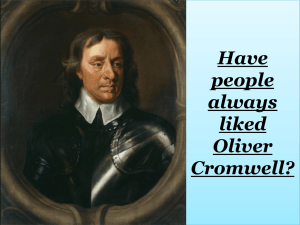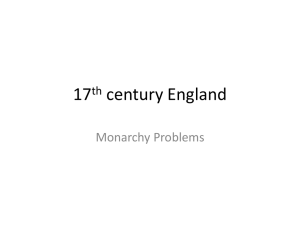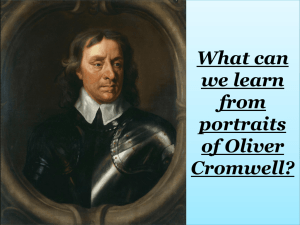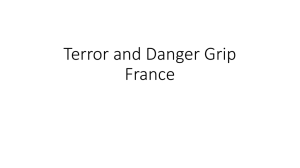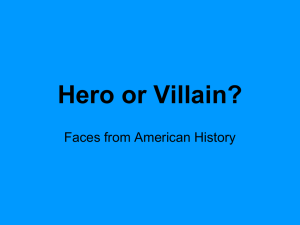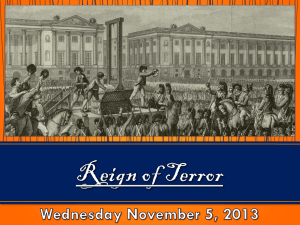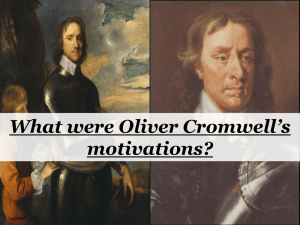My PBL Notes - WordPress.com
advertisement
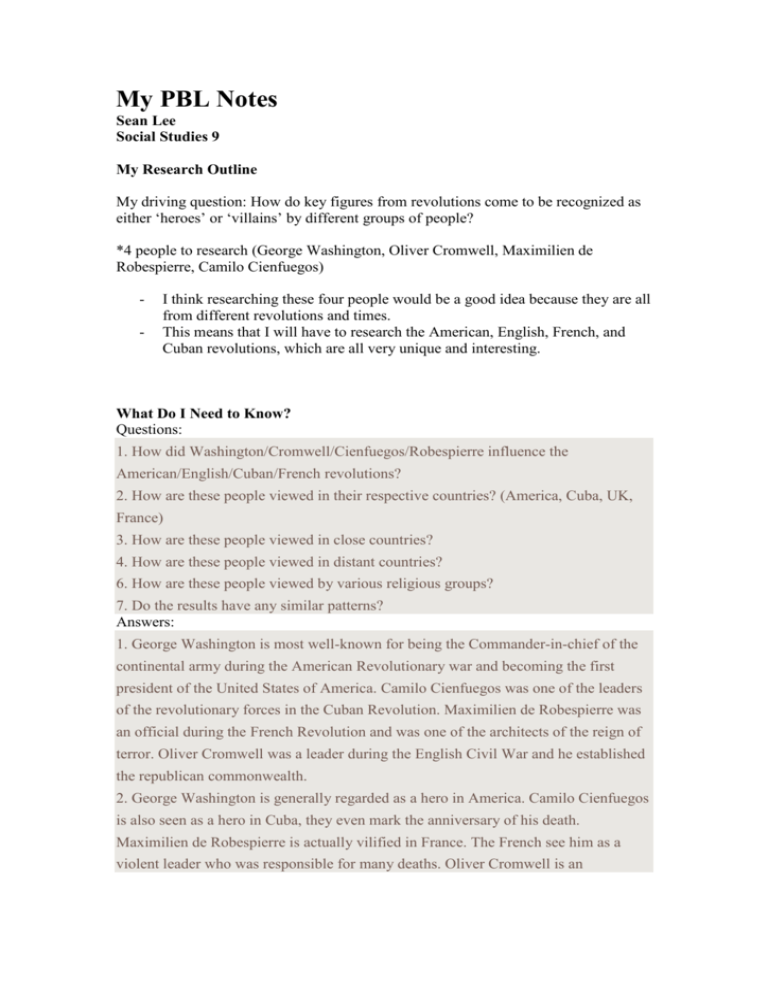
My PBL Notes Sean Lee Social Studies 9 My Research Outline My driving question: How do key figures from revolutions come to be recognized as either ‘heroes’ or ‘villains’ by different groups of people? *4 people to research (George Washington, Oliver Cromwell, Maximilien de Robespierre, Camilo Cienfuegos) - I think researching these four people would be a good idea because they are all from different revolutions and times. This means that I will have to research the American, English, French, and Cuban revolutions, which are all very unique and interesting. What Do I Need to Know? Questions: 1. How did Washington/Cromwell/Cienfuegos/Robespierre influence the American/English/Cuban/French revolutions? 2. How are these people viewed in their respective countries? (America, Cuba, UK, France) 3. How are these people viewed in close countries? 4. How are these people viewed in distant countries? 6. How are these people viewed by various religious groups? 7. Do the results have any similar patterns? Answers: 1. George Washington is most well-known for being the Commander-in-chief of the continental army during the American Revolutionary war and becoming the first president of the United States of America. Camilo Cienfuegos was one of the leaders of the revolutionary forces in the Cuban Revolution. Maximilien de Robespierre was an official during the French Revolution and was one of the architects of the reign of terror. Oliver Cromwell was a leader during the English Civil War and he established the republican commonwealth. 2. George Washington is generally regarded as a hero in America. Camilo Cienfuegos is also seen as a hero in Cuba, they even mark the anniversary of his death. Maximilien de Robespierre is actually vilified in France. The French see him as a violent leader who was responsible for many deaths. Oliver Cromwell is an interesting case. He is seen as both a hero and a villain in England and is one of the most controversial/on-the-border figures in any revolution. 3. In close countries such as Canada and Mexico, George Washington isn’t necessarily looked upon as a hero, but he is generally seen as a ‘good’ person. Robespierre is also seen as a villain in nearby countries such as England. Oliver Cromwell is, like in his own country, seen as both in close countries except for Ireland, where he is vilified. 4. Once again, George Washington is viewed as a hero in distant countries, including England, his opponents, who admire and praise his achievements. Although Robespierre isn’t a prominent/well-known figure in distant/unrelated countries, those who know of him have a negative image of him. On the other hand, Cienfuegos, who also isn’t well known in distant countries, has a positive reputation. Oliver Cromwell, once again, is half/half. 6. With the exception of extremists or unorthodox religions, Washington is still looked upon as a hero and Cienfuegos is still a hero. However, Oliver Cromwell is not liked by the Roman Catholic population due to his dislike and actions against them. Robespierre is also disliked by the Catholics and Christians because of his opposition towards them and the Cult of Reason. 7. The overall findings I have gathered are that: George Washington is basically an international hero. Cienfuegos is not very well-known outside from his country where he is a hero. Oliver Cromwell is the most controversial out of the four, no certain group of people think he is a hero or villain with the exception of maybe Ireland and the catholics. Robespierre is vilified by most. Basic Research of These People (Quick Notes) George Washington -First president of the United States -Commander-in-chief of the continental army during the American revolutionary war -One of the Founding Fathers of the US -Is considered to be a hero in America -He is also respected in other countries Oliver Cromwell -English military/political leader -Also was involved in the English Civil War -Lord Protector of the Commonwealth of England, Ireland, and Scotland -Attempted to make England a republic -One of the signatories of King Charles 1’s death warrant. -Cromwell has an up-and-down, kind of confusing reputation. (IMPORTANT) -Some people think Cromwell is a hero while others think he is a villain. -Winston Churchill’s suggestion of naming a British battleship after Cromwell was vetoed by King George the Fifth. -Two groups that see Cromwell as an evil person are the Irish and the Catholics. -Cromwell ordered massacres against Ireland and the Irish think he is a bloody psychopath. -Cromwell passed a series of Penal Laws against Catholics and discriminated against them. -Also, Cromwell was seen as an evil during the Victorian Period when the life of King Charles was glamorized. Maximilien de Robespierre -French lawyer and politician -Impacted the French Revolution -Known for helping create the Reign of Terror (he is also known as the ‘soul’ of the terror) -Executed thousands of people -Formed the Cult of the Supreme Being (not cult of reason) -Cult of the Supreme Being = a sort of creed/religion based on deism that Robespierre created that discouraged Christianity and Catholicism. -This was eventually banned by Napoleon -Robespierre is mostly vilified, especially in his home country, France, where they don’t have statues or monuments dedicated to him. Camilo Cienfuegos -Cuban revolutionary -Led the Cuban Revolution along with Fidel Castro, Che Guevara, and several more revolutionaries. -Managed to overthrow Fulgencio Batista -Disappeared on a plane… -He is a national hero in Cuba -Schools in Cuba are named after him and he is on the 20 peso bill. -Furthermore, there is a day dedicated to him (October 28th) when schoolchildren throw flowers into the sea to honor him. -Cienfuegos isn’t very well known outside of Cuba. Final Conclusion/Answer Even though I only researched 4 people, I realized that it would be impossible to pinpoint exactly how these reputations are formed. So many things can happen. On the other hand, I came up with three general observations. 1. Discrimination=BAD While Washington and Cienfuegos never really discriminated against specific races or religions, both Cromwell and Robespierre did, specifically acting against Catholics. This shows that outwardly acting against certain religions doesn’t help one get popular among the public. 2. Violence is not the answer. Although all four of these figures fought in wars, it is clear that unnecessary violence can bring down popularity. Both Robespierre and Cromwell are disliked for their violence, with Robespierre’s Reign of Terror and Cromwell commiting regicide and ordering massacres. 3. My final observation was that one’s reputation benefits when his actions end up having a positive effect on his country in the long-term. In other words, if your actions end up benefitting your country even after your death, people tend to like you. George Washington freed the USA, Cromwell changed the British political system so that the king would never be able to rule on his own, and Cienfuegos got rid of Batista’s unpopular government, liberating the Cubans. On the other hand, Robespierre is believed to have set back France as he sent France into a violent and chaotic period.
